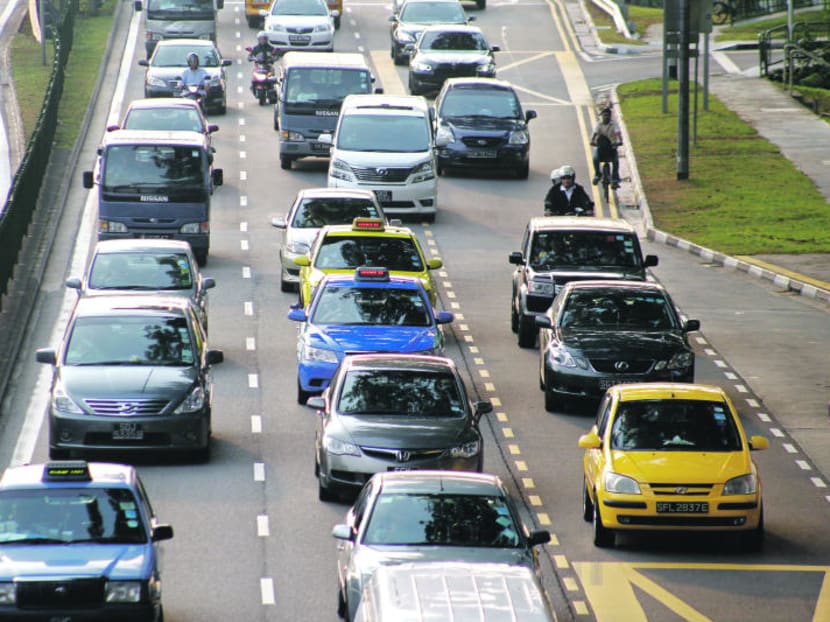Inflation rose 0.6 per cent in November
SINGAPORE — The Republic’s headline consumer price index (CPI) rose 0.6 per cent last month from a year earlier, data showed on Tuesday (Dec 26), as private road transport costs edged up mainly due to higher car prices.

Data showed that private road transport costs edged up mainly due to higher car prices. TODAY File Photo
SINGAPORE — The Republic’s headline consumer price index (CPI) rose 0.6 per cent last month from a year earlier, data showed on Tuesday (Dec 26), as private road transport costs edged up mainly due to higher car prices.
This was the fastest year-on-year increase since July, when CPI All-Items also rose 0.6 per cent compared to the same period last year.
In October, the CPI All-Items increased 0.4 per cent year-on-year.
The Monetary Authority of Singapore’s (MAS) core inflation, which excludes the costs of accommodation and private road transport, was unchanged in November from the previous month at 1.5 per cent, as a slower pace of increase in the prices of retail items offset higher services inflation. The central bank’s core inflation measure excludes changes in the prices of cars and accommodation, which are influenced more by government policies.
Accommodation costs fell by 3.9 per cent in November, moderating from the 4.2 per cent drop in the previous month.
Over the same period, services inflation increased slightly from 1.5 per cent to 1.6 per cent. “This was on account of a rise in airfares, which was a reversal from the decline registered in the previous month, as well as a larger increase in telecommunications services fees and holiday expenses which more than offset the smaller increase in recreational and cultural services fees,” the MAS and the Ministry of Trade and Industry (MTI) said in a joint press release.
On the inflation outlook next year, the MAS and MTI said imported inflation is likely to “rise mildly, as global demand improves amid ample supply in key commodity markets”.
Notwithstanding recent volatility, global oil prices are expected to increase only slightly next year as a whole compared to 2017, they added. Global food commodity prices are also expected to rise modestly.
Overall, the cost pressures in the Singapore economy should “remain relatively restrained”. “Although labour market conditions have improved recently, the gradual absorption of previously accumulated slack will temper wage pressures in the near term,” the MAS and the MTI said. “ Meanwhile, other non-labour costs such as commercial and retail rentals continue to be subdued.”
The agencies said MAS core inflation is expected to be around 1.5 per cent this year, and average between 1 and 2 per cent next year. CPI-All Items is projected to reach about 0.5 per cent this year and be in the range of zero to 1 per cent next year.





